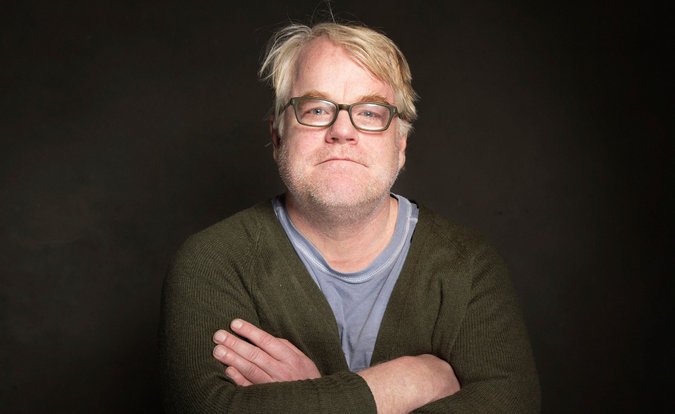Second in a series
[Editor’s Note: Director/producer O’Donnell, widow of actor Philip Seymour Hoffman, discusses their relationship with a www.vogue.comreporter four years after his death from an overdose.]
I told Phil that it would probably take a while to get pregnant because of my age (34).
As it turned out, it happened almost instantly. I remember calling my mother and telling her, “Hi, Mom, I’m pregnant, and, oh yeah, I have this new boyfriend.” Her response was “When do we get to meet him?”
Phil and I were both thrilled, and, soon after, we moved into an apartment in the West Village together.
Early one morning in March 2003, I went into labor, which went on for 40 hours before I was finally given a C-section, delivering our son, Cooper.
I remember the doctor cutting the umbilical cord and handing the baby to Phil. We hugged and kissed and cried—he was the most beautiful thing I’d ever seen—and Phil beamed with uncontainable joy.
Then, wearing scrubs, he started to carry Cooper toward the door to take him to our families in the waiting room. The midwife had to stop him and explain that he couldn’t just walk out of the O.R. with a newborn in his arms. He was so proud and over the moon that he couldn’t wait to show his son to the world.
My memories of Phil are overwhelmingly of a sweet and gentle and loving man, which is not to say that he didn’t have a temper, as anyone who knew him well will tell you.
He was a sensitive person, and he was incapable of masking his anger. He would never sit and stew, or leave an argument unresolved.
One night when Cooper was five months old, I left him alone with Phil for the first time to join a friend who had invited me to a Marc Jacobs show.
When I returned, Cooper was crying—he wouldn’t take the bottle and had been bawling the entire time. Phil yelled, “You are never leaving the apartment again. I don’t have breasts! I can’t feed him!”
Then he handed me Cooper and stormed out onto our balcony for a smoke. A few minutes later, he slunk back in, and we both started laughing.
The growth of our family coincided with the rise of Phil’s career. I was pregnant with Cooper during the filming of Along Came Polly and Cold Mountain, and when he was born, Phil was rehearsing for Long Day’s Journey into Night on Broadway.
While he was wrestling with his identity as an actor and whether he could carry entire movies, Capote came along.
They Looked So Different
Phil overcame his hesitancy about portraying a man whom he physically couldn’t resemble less. That film, in which he transformed himself so astonishingly, was the game-changer. He won every major award, including the Oscar, while I was pregnant with our second child, Tallulah. She was born in 2006. Willa arrived two years after that.
Our loose rule was to never spend more than two weeks apart as a family, and Phil insisted on it with a kind of urgency. We had babysitters, but Phil refused to hire a full-time au pair. More than once, I found myself asking, “You want to bring the baby to what?” Or “You want us to come to Winnipeg in the winter while you’re shooting?” And he’d say, “Just bring him. We all need to be together.” As our family grew, he remained adamant about it. “Can’t we leave the little ones home, and you and I and Cooper——?”
“No. We’re all doing it together.”
When I look back at how close we all were, I wonder whether Phil somehow knew that he was going to die young. He never said those words, but he lived his life as if time was precious. Maybe he just knew what was important to him and where he wanted to invest his love. I always felt there was plenty of time, but he never lived that way. I now thank God he made us take those trips. In some ways, our short time together was almost like an entire lifetime.
Everything Was Good Until…
If I were to take a snapshot of how things were before they changed, it would look like this:
We were living in the West Village. We had three healthy kids. Phil’s career was skyrocketing. He and I were still collaborating on theater and films, and I had started directing plays.
We had wonderful friends. We had money. We were both so aware, since we came from middle-class backgrounds, of how much we had. His mantra was: We have it to give. And he did.
Phil was endlessly generous with his time and energy and money, whether it involved something as serious as paying for a friend to go to rehab or just having coffee with an intern, meeting a writer struggling with a play at midnight, or showing up for a babysitter’s non-Equity showcase.
(To be continued)

